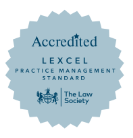Helping Your Children to Buy a Home
According to research by Legal & General in October 2020, 49% of first-time buyers aged under 35 got help from the Bank of Mum and Dad to buy a property. 2/3rds of these buyers said they would not have been able to buy without that help and would have had to delay their purchase by five years. In 2020, the average help was £20,000.
Here are some of the ways the Bank of Mum and Dad can help.
Gifting a deposit
A gift of cash to make up a shortfall in the deposit and boost borrowing power is probably the most common way to help. Most lenders will accept gifted (or partly gifted) deposits, but they will ask for written confirmation from you that it is a true gift. Children will not have to pay any immediate tax on money gifted to them and parents will not pay any tax on the gift either. However, an inheritance tax bill could be due. It is worthwhile speaking to an accountant about the potential tax liability.
Giving a loan
How about loaning a part of the purchase price? A loan must be declared to a mortgage lender and the lender may decline to lend as a result. Any interest received might be taxable and you must be certain that the loan will not be caught by Consumer Credit legislation.
Equity as security
Offering the equity in your home as additional security against the loan. If nothing goes wrong, it shouldn’t cost you anything. But if the lender forecloses and suffers a loss it will come after you for any shortfall.
Savings as security
An offset mortgage might allow for parental savings to be offset against a child or family members mortgage – these are known as Family Offset Mortgages. This reduces how much interest your child would pay. The main drawback is that you cannot access your savings until the term is up.
Guarantor mortgages
Essentially, you are agreeing to cover the mortgage payments if your child fails to do so. The lender may agree to remove the guarantor from the mortgage at a later date if the Borrower can prove they are able to take on the debt by themselves.
Buying together
You could buy with your child making you equally liable for the repayment of the loan. A drawback to this plan is the potential for higher rate SDLT as if you already own a property, then your child’s new home would count as a second home. If it is your second home and you are still on the mortgage when the property is sold, there may be capital gains tax (CGT) liabilities. Some lenders separate the mortgage commitment from the title ownership so you can be a joint borrower without owning the property.
Protecting a Gift
If you are giving your child money for a deposit and they are buying with their partner, you could protect the money you have gifted in the event they split up with a Deed of Declaration of Trust. This states who the money was gifted to – so you can specify you gave it to your child and not to them and their partner. If the couple break up, this document can be used to support a claim by your child to retain the gift. Bear in mind though, that if your child goes on to marry the person, this could affect the protection offered by the Deed of Declaration of Trust.
The Team involved in providing your conveyancing services can be found here: Our Residential Conveyancing Team.
For initial advice or for a conveyancing quote, please contact our Conveyancing Team on 01392 209209 or use the Contact Form opposite.
If you are selling or transferring your home as part of a relationship breakdown or if you are purchasing a home at the start of a new relationship and require advice, please contact our Family, Divorce, Separation & Finance Team.









